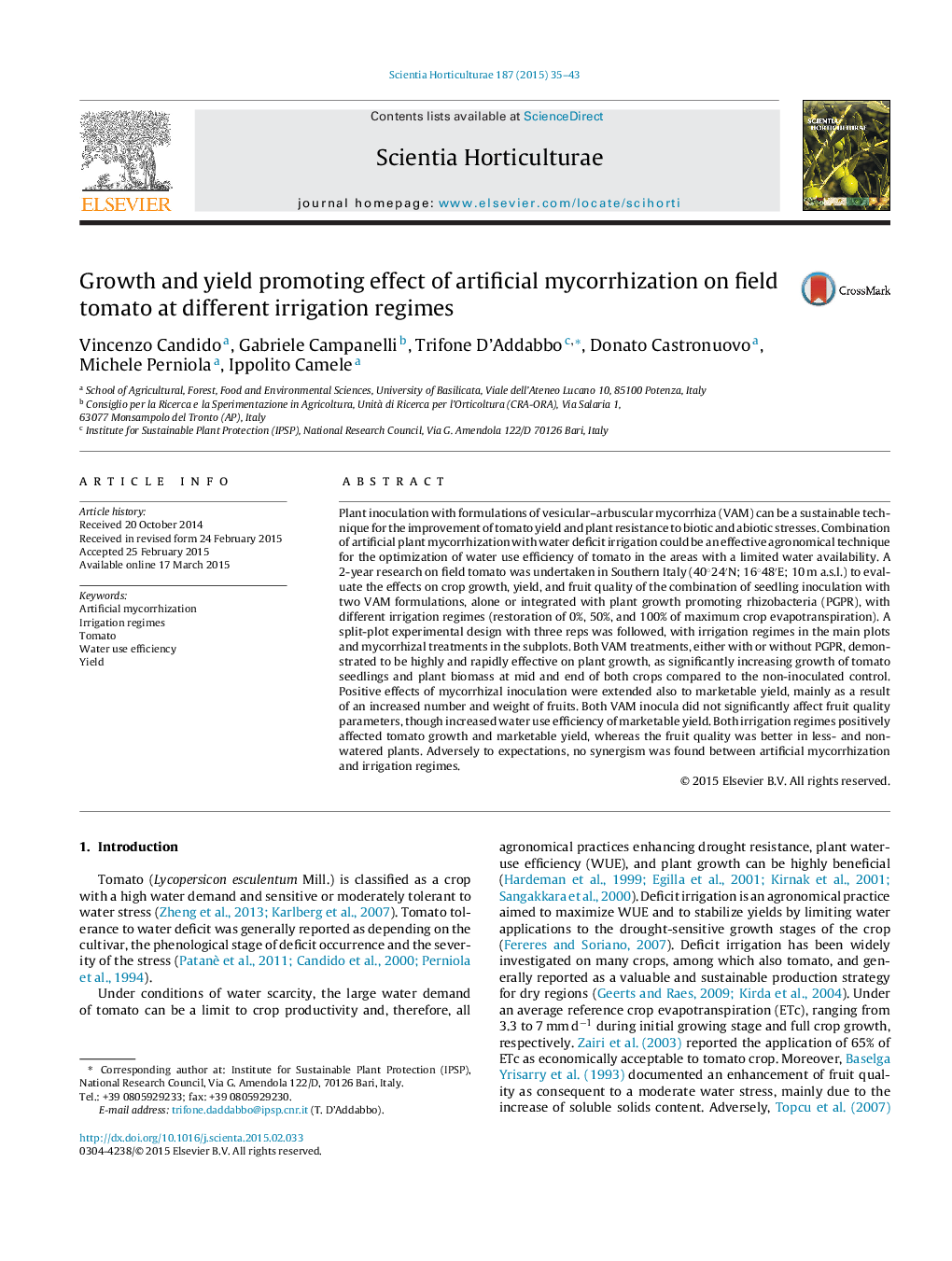| Article ID | Journal | Published Year | Pages | File Type |
|---|---|---|---|---|
| 4566359 | Scientia Horticulturae | 2015 | 9 Pages |
•Under the climatic conditions of Southern Italy, irrigation is the best agronomical practice for the enhancement of tomato yield.•Plant inoculation with formulations of vesicular–arbuscular mycorrhiza can be a sustainable technique to improve tomato plant growth and yield.•Combination of artificial plant mycorrhization with water deficit irrigation is not always effective for the optimization of water use efficiency of tomato crop.•The combination can be effective only if specifically adjusted to tomato genotype more than to the pedoclimatic and agronomical conditions of the crop.
Plant inoculation with formulations of vesicular–arbuscular mycorrhiza (VAM) can be a sustainable technique for the improvement of tomato yield and plant resistance to biotic and abiotic stresses. Combination of artificial plant mycorrhization with water deficit irrigation could be an effective agronomical technique for the optimization of water use efficiency of tomato in the areas with a limited water availability. A 2-year research on field tomato was undertaken in Southern Italy (40°24′N; 16°48′E; 10 m a.s.l.) to evaluate the effects on crop growth, yield, and fruit quality of the combination of seedling inoculation with two VAM formulations, alone or integrated with plant growth promoting rhizobacteria (PGPR), with different irrigation regimes (restoration of 0%, 50%, and 100% of maximum crop evapotranspiration). A split-plot experimental design with three reps was followed, with irrigation regimes in the main plots and mycorrhizal treatments in the subplots. Both VAM treatments, either with or without PGPR, demonstrated to be highly and rapidly effective on plant growth, as significantly increasing growth of tomato seedlings and plant biomass at mid and end of both crops compared to the non-inoculated control. Positive effects of mycorrhizal inoculation were extended also to marketable yield, mainly as a result of an increased number and weight of fruits. Both VAM inocula did not significantly affect fruit quality parameters, though increased water use efficiency of marketable yield. Both irrigation regimes positively affected tomato growth and marketable yield, whereas the fruit quality was better in less- and non-watered plants. Adversely to expectations, no synergism was found between artificial mycorrhization and irrigation regimes.
